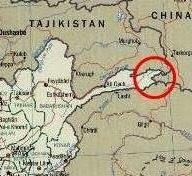
China's assertiveness and outright projection of power in the South China Sea is only one component of its greater goal of domination in Asia. The Chinese have been busy creating a chain of artificial islands with military bases in the South China Sea to the consternation of, not only, the U.S., but other countries in the region. Vietnam and the Philippines are particularly alarmed due to the proximity of the artificial islands to their territories. The U.S., which has had unfettered access to international waters in southeast Asia, has been concerned about China's expansionism.
The U.S. Navy recently dispatched The Lassen, a guided missile destroyer, to the area. She sailed within 12 nautical miles of the islands. This was a direct challenge to China's claim that the islands are within its territorial borders. While the Chinese expressed deep displeasure with this move, the U.S. maintains that it will not be deterred in exercising its right to freely navigate in international waters. The U.S. posture is the right signal to insure it will not cede its responsibility relative to maintaining the balance of power in southeast Asia. While China's ambitions in the South China Sea have made headlines, its outreach to other parts of the world under the guise of economic development have mostly gone unnoticed. One case in point is China's friendly overtures and increasing involvement in Afghanistan. Afghanistan needs any help it can get and China is interested in the untapped mineral riches of its neighbor.
Afghanistan shares a small but important border with China in the rugged extreme northeast of the Wakhan corridor located in Badakhshan province. On the Chinese side lies the restive province of Xinjian with a mostly Muslim population. China is concerned that terrorist groups from central Asia such as The East Turkmenistan Islamic Movement will be able to infiltrate the country through an unsecure Afghanistan.
Afghan Chinese Border in Wakhan
At least as far as the security of Afghanistan is concerned, China and the U.S. share a common goal. To this end, in 2014 the Chinese urged the Afghan government of Hamid Karzai to sign the Bilateral Security Agreement (BSA) with the U.S. Although Karzai refused to sign the BSA, his successor Ashraf Ghani inked the agreement in 2015 soon after taking office. China has long been a supporter of Afghanistan's neighbor to the south and east, Pakistan. Taliban and other terrorist groups enjoy safe havens in that country, in addition to receiving direct support from Pakistan's government. In a recent meeting with the Chinese envoy, Afghan President Ghani called for China to pressure Pakistan to halt its support of terrorism. Security in Afghanistan will also enable China to move aggressively in the area of gaining access to Afghanistan's natural resources. China was the first country to secure an exclusive contract for the copper mining rights in Afghanistan. The Aynak copper deposit, located in the eastern province of Logar, is thought to be one of the largest in the world. It was alleged that China secured the contract by giving a $30M bribe to the then Afghan minister of mining in 2007, beating competition from the U.S. and other countries. But the state owned mining behemoth, China Metallurgical Group Corporation, has yet to mine any copper. Not only is the area unsecured, but the mine is located under the ruins of an ancient Buddhist city. The fear is that the mining operations will destroy a priceless ancient heritage. Additionally, the price of copper has fallen drastically and the Chinese are demanding that Afghanistan substantially lower the royalty rate. So both countries are currently at an impasse.
Aynak Buddhist Stupa
Afghanistan also has large deposits of iron ore, gold and other raw materials that China needs. But exploiting these riches is not possible in the near future. Therefore, China is prepared to engaged in Afghanistan for the long run. To show that China's goal in the country is not purely driven by the selfish wish to secure raw materials, it has embarked on a charm offensive. China recently indicated that it will undertake the construction of 10,000 apartment units in Kabul. This project is aimed to reduce the housing shortage in the capital. Although the details are sketchy, China will assume the full financial burden as a gift to Afghanistan.
While China was slow to show interest in Afghanistan after the overthrow of the Taliban by U.S. forces in 2001, it has changed course as part of its overall ambitious strategy in Asia and Africa. The U.S. and its NATO allies spent much blood and treasure in Afghanistan, but China will reap the economic benefits on a free ride.


